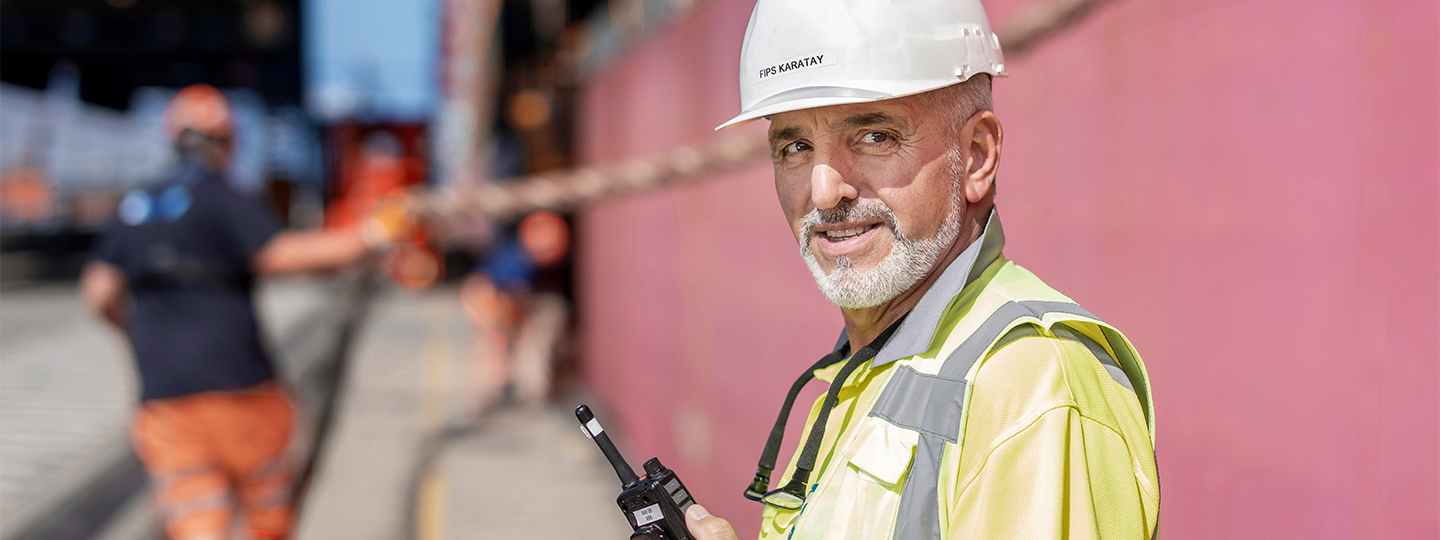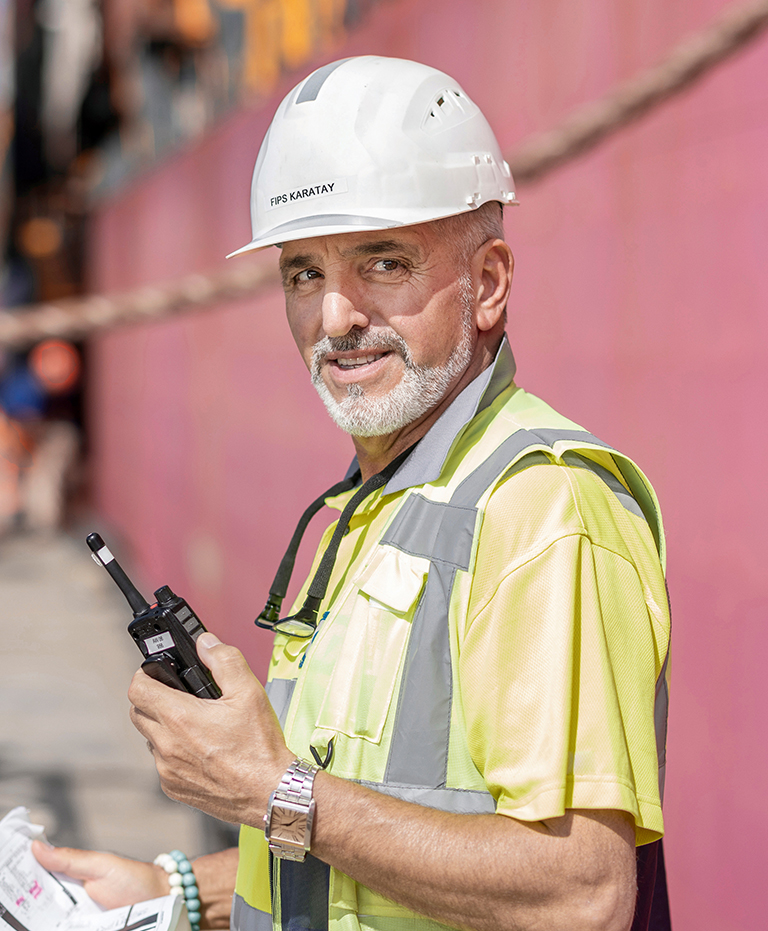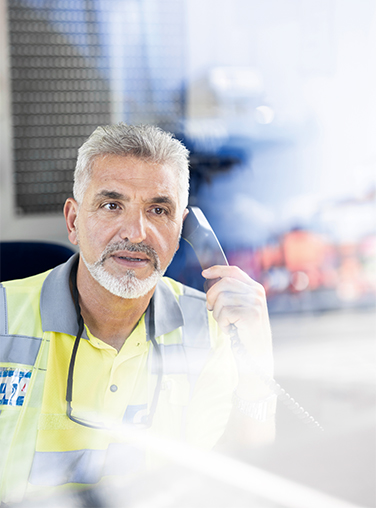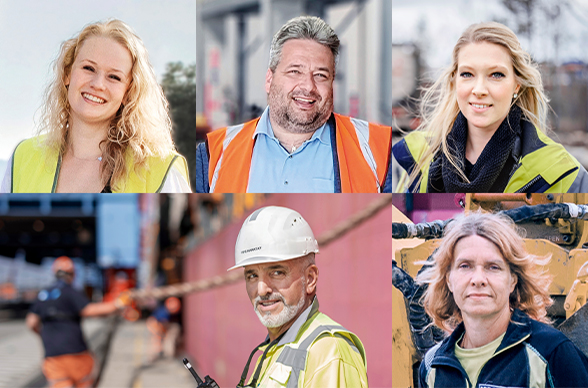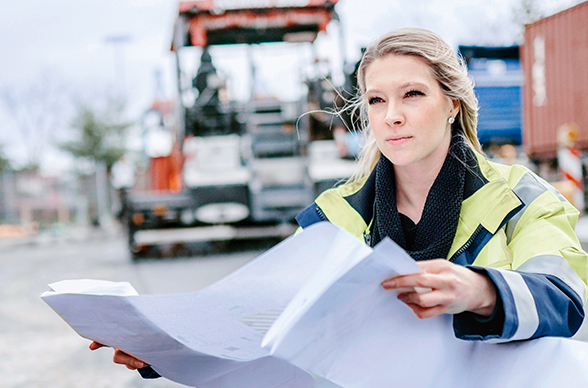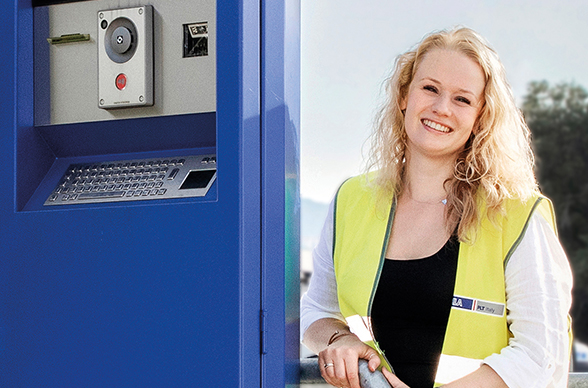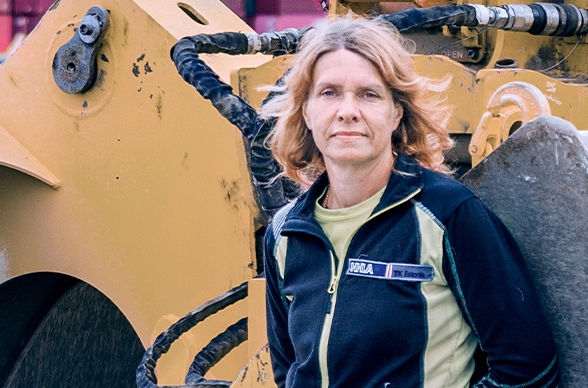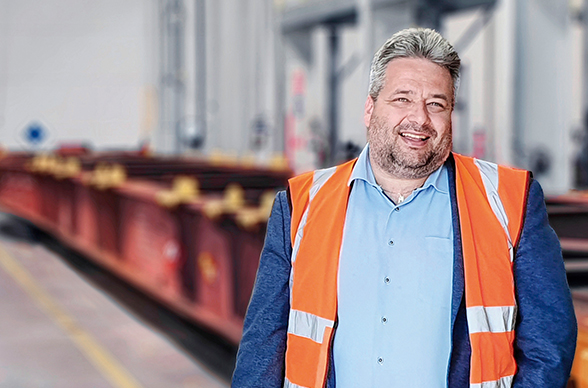Fevzi Karatay, known by everyone as “Fips”, has experienced the major changes at the Port of Hamburg first hand since the 1980s. The port has evolved – and so has Fips.
You know the Port of Hamburg inside and out. What has changed compared to your early days?
Nowadays, much more modern equipment is used at the terminals. Back in the day, radio broadcasts were used to find 1,500 workers at once to work at the port, which today would be unthinkable. When it comes to the activities from back then, there was one main requirement: physical strength. In the first few years, I myself hauled sacks. That surely does take a toll on the body.
What came after the unskilled labour jobs?
I realised very quickly that I didn’t want to do that for the rest of my life. Therefore, I chose to get further training and certifications –forklift operator certification, crane operator certification for 3- and 50-tonne cranes, port trade proficiency certification, large equipment training, gantry crane certification. I then spent many years working as equipment operator before joining HHLA in 2002.
Which tasks did you then take over?
I have been a team leader for cargo handling at Container Terminal Altenwerder since then. That means I coordinate around 25 colleagues and decide who should take care of which task when loading and unloading ships. Before that, I take a close look at the daily agenda and the ship schedule and then assign the people accordingly. Special instructions are necessary when dealing with dangerous goods. I then look over the individual activities and also regroup the team if needed.
Are not all activities at the container terminal automated by now?
No, there are processes that have to be carried out manually. Large cargo, such as tank containers transported in open containers, must be elaborately turned using gantry cranes and placed on the ship accordingly. However, technology has of course evolved significantly, and handling is carried out at ever faster speeds due to the technological and digital tools.
Which fundamental changes have otherwise taken place?
The focus on environmental protection and sustainability has sharpened intensively. The people in my team keep their eyes open while they work and immediately report anything they notice. Our top priority is health and occupational safety; here, too, a lot has happened, and a lot of positive things. New technology also helps because it makes our work easier.
About...
Fevzi “Fips” Karatay, born in northern Turkey, moved to Hamburg at the age of 16 “as the son of a migrant worker and without speaking a word of German”, in his own words. He went to school, learned German, got hired at the port and worked different positions until becoming a team leader at HHLA.

















